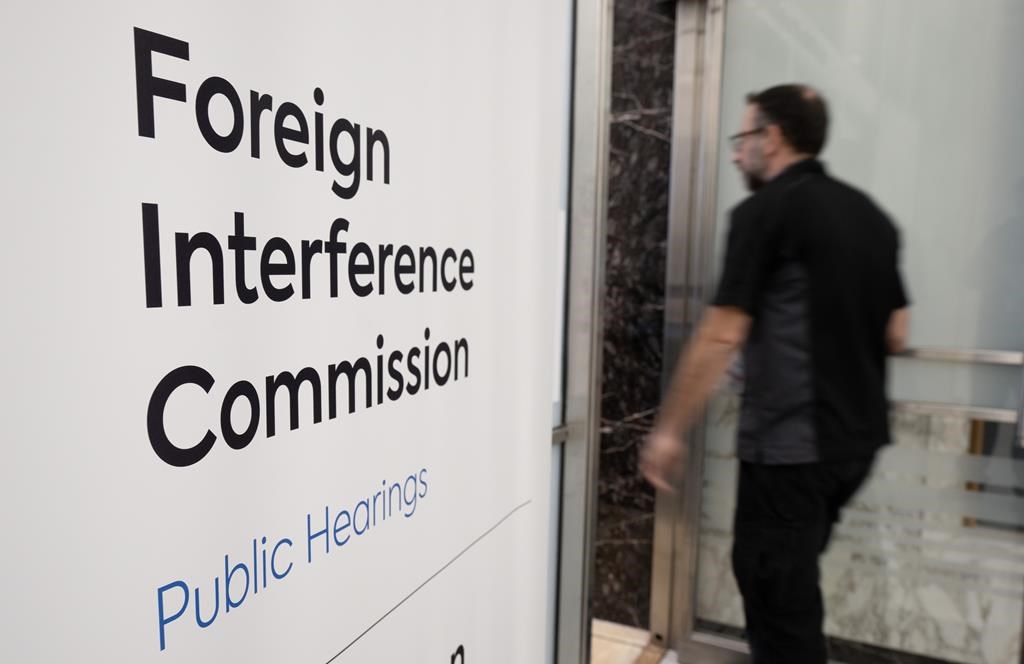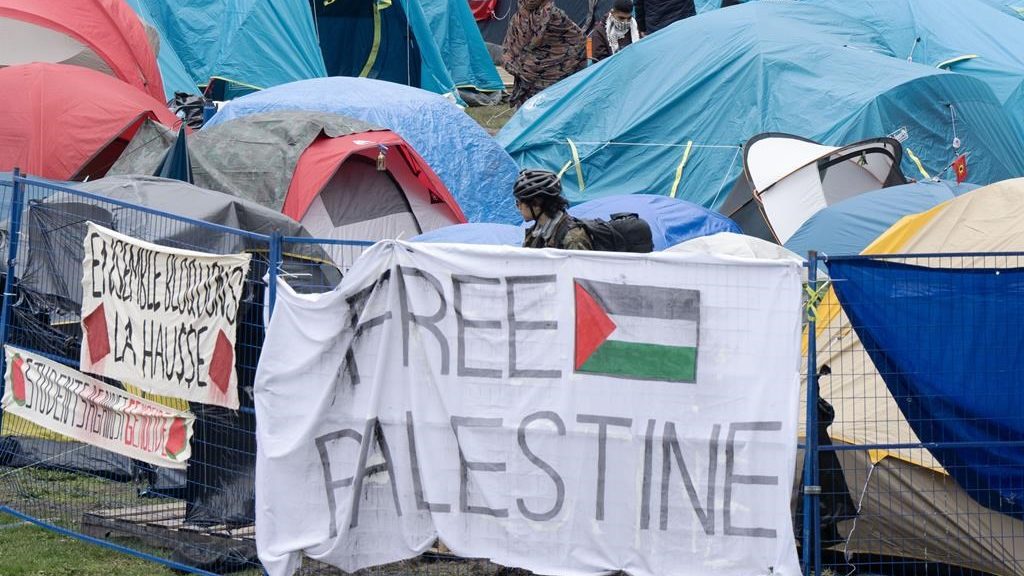Coronation conversation must include impacts of colonization: On Canada Project
Posted May 7, 2023 6:58 am.
Last Updated May 7, 2023 12:30 pm.
The Coronation of King Charles III has been widely covered this weekend as a historic day but a local group is highlighting the importance of remembering the impact of the British monarchy and what they call a shameful legacy.
On Canada Project is a group that says it aims to dismantle the status quo and champion change, while bridging “information gaps to invite more Canadians into critical conversations about Canada and the world.”
Founder Samanta Krishnapillai says conversations and public discourse around the coronation must include more than the new king’s patronage work, how he was the longest-waiting heir apparent in history, and the ongoing royal family drama.
“If you’re going to get all hyped up about this coronation, alright — but also speak to the harm that this family has done and continues to benefit from and continues to ignore,” she says, echoing a recent On Canada Project Instagram post that calls for “the whole damn story.”
View this post on Instagram
“We’re still telling the whitewashed, maple washed, like royal washed version of the events,” she says.
Krishnapillai feels events like the coronation further obscure the violent colonial history of British imperialism, of which the monarchy was a major beneficiary.
For example, she says when the British exited a country they colonized, they intentionally left it in economic, political and social turmoil.
“Because if you’re so destabilized, you fight each other and you don’t go, ‘hey man, can I have my stuff back from the museum? Can I have reparations?” she says.
“All of these countries that gained independence back from their oppressor, who took it in the first place, they’re so harmed by the legacy of colonization, which is why people like you and me aren’t in our homeland anymore and why we’re in places like Canada.”
She adds that British colonialism has also shaped global attitudes about former colonies.
“We believe that Africa is inherently poor, which is not true. You wouldn’t colonize a spot that you couldn’t get anything out of,” she says.
“That continent is incredibly resource rich, which is why they did what they did there. And a lot of the wealth and money for both a country like the UK but also Canada is based off of that stolen wealth,” she says.
The idea that colonization was a “civilizing force” she says is another example.
“That’s all garbage. That’s not a real thing. For example, back then they thought yoga was barbaric. Now every person on the street’s doing yoga. So this is not a conversation about civilizing us,” she says.
“The spread of English language [is touted as] such a great benefit of colonialism. That’s also garbage. The English language doesn’t capture the nuance in so many other languages. Not that it’s a bad language, just that it’s not inherently better.”
At the height of the British Empire, there were 57 colonies around the world. Hong Kong was the last major British colony to gain its independence in 1997.
While it’s been more than 20 years since then, Krishnapillai feels the argument that a monarch in 2023 should not be held responsible for the wrongs of the past doesn’t hold any merit.
“Even if you did not directly cause harm, if you were benefiting from it, you are complicit to it … and I think Charles has benefited from every awful decision that was made before him,” she says.
Professor and historian Padraic Scanlan from the University of Toronto adds that on the occasion of the coronation, it is important to remember that the opulence of the ceremony is intimately tied with British imperialism and how the monarchy profited from it.
“The crown in England is one of the United Kingdom’s biggest landowners — a country that is suffering a cost of living crisis, where something like more than 13 million people live in poverty. That inequality in the present-day United Kingdom was set up on a kind of global scale, especially in the 18th and 19th centuries — whether it was through the mass exploitation of enslaved African laborers in the Caribbean or through the conquest of the Indian subcontinent,” he says.
“The crown sits on top of a body of wealth that was accumulated through exploitation over centuries. The idea that the Crown remains one of the United Kingdom’s biggest landowners is a kind of absurd and sort of repulsive fact in the present.”
He adds that conversations around the monarchy should also include Canada’s relationship with it.
“I think criticizing the monarchy is fair and merited, but hopefully it will open up, especially in Canada, a wider conversation about Canada’s relationship to the British imperial and colonial project,” he says.
“Canada’s continuing association with the Crown ought to remind us that Canada, or at least settler Canada, is a legacy of the British Empire and that the Canadian state has a share in the benefits that accrued through British colonialism and British imperialism.”
As for the coronation itself, Scanlan agrees that the ongoing harms of British colonialism are made more difficult to discern in the midst of the pageantry of the coronation of a new British monarch. He adds that all the pomp and wealth on display has a strategic purpose.
“It really does remind me of the Oscars. The stars are out and then afterward, the next day, people will look to see who looked good and who looked silly. But I think that the spectacle was designed or redesigned for the modern era after the monarchy was nearly abolished in the 17th century in Britain,” he explains.
“I think it’s important to think about the spectacle as not something that’s ancient and eternal, but something that was made specifically to shore up the authority of the institution that it represented.”
“I think it’s okay to indulge in the gossip and looking at the fashion and all of that stuff, but to do so without a critical lens is a mistake,” adds Krishnapillai.
“We need to acknowledge that by pledging loyalty and bending a knee to the British and that royal family, we are perpetuating white supremacy culture. So let’s choose differently for ourselves, for each other and for the world we want to leave behind.”








